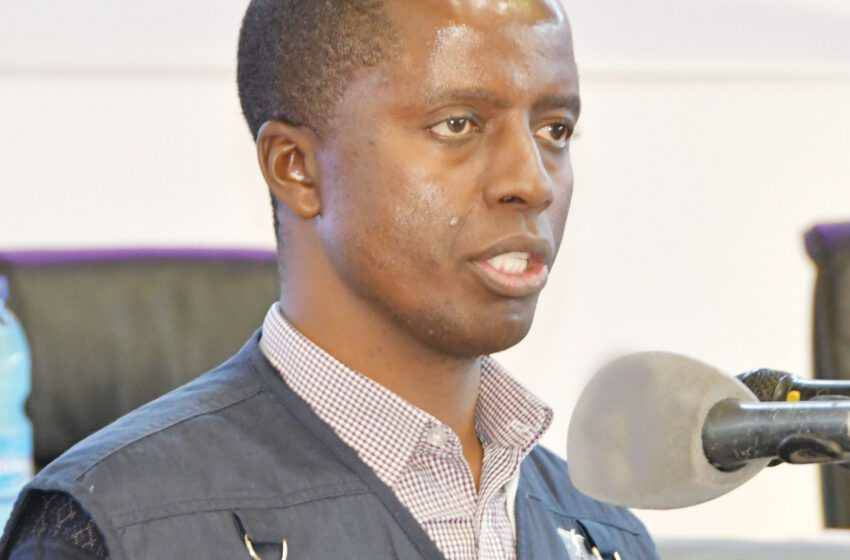MEC unpacks new strategy
Malawi Electoral Commission (MEC) launches its five-year Strategic Plan and the 2025 General Election Operational Plan on Friday, 11 August 2023 in Lilongwe. Our Staff Writer JAMES CHAVULA engages the MEC spokesperson Sangwani Mwafulirwa to unpack the significance of the two documents. Excerpts

What does the double launch represent in the countdown to the next tripartite election slated for September 2025?
The strategic plan is a comprehensive roadmap that will guide the activities of the commission for the next five years, enabling us to adapt and respond to the evolving electoral landscape to achieve the new vision that will be unveiled during the launch.
On the other hand, the action plan outlines the activities that MEC will undertake in the run-up to the 2025 General Election. It unpacks all the activities that will be implemented in a common man’s language so that everyone who reads it can easily understand what is happening and participate where appropriate.
Why is this step important on the road to 2025?
Running an organisation without a strategic plan is like flying a plane without a compass. You may not know where you are going.
The blueprint is a beacon that shows whether MEC is taking the right direction or is going off-tangent. The strategic plan creates benchmarks against which the success of the organisation can be measured. Therefore, it is crucial to ensure that we have a strategic plan that is up-to-date and relevant for the efficient functioning of an electoral management body.
We work with various actors, so the strategic plan becomes a common denominator of the support we receive. Without it, organisation implement activities just because there is funding even if it does not support their direction.
How do the two documents position MEC in preparation for what could be a highly contested general election in 2025? How will this help MEC succeed where many organisations fail to tick despite having strategic plans launched with pomp?
Having a strategic plan alone is not enough to guarantee success of an organisation. To us implementation and prioritisation is key. MEC has put in place measures to track progress and success. At policy level, there is a commission committee—the research, monitoring and evaluation committee. At the secretariat, we have a full-fledged research, monitoring and evaluation department mandated to monitor the implementation of the strategic plan. The commission has already advertised calling for expression of interests to conduct a baseline survey. There will also be mid-term evaluation and updating of the strategic plan. We believe the measures and the commitment we have at the moment we will not have this document like others that pile dut in shelves.
Do you have the funding to implement all the activities listed in the new strategy?
As a commission, we are working in an environment in which the resource envelope is increasingly constrained and there are always new and competing demands for the same few resources. MEC is aware of funding challenges as we are mooting more innovative ways as permissible within the laws to bridge the resource gap. With a very well-crafted and convincing direction, we should broaden our resource base to include new and non-tradition sources of income without increasing the cost of access to elections and its process by the electorate. We believe those that would want to help would easily come in when they are sure that the Commission knows where it is going and is focused on doing that.
MEC works with stakeholders who are interested in every step that it takes. Were they consulted in the development of this document?
The strategic plan has been developed with internal expertise. No consultant was hired and we relied on MEC staff. However, the commission took time to engage various stakeholders for their input. We appreciates that MEC’s work impacts on number of stakeholders for a greater good of the society. As we shaped the vision of electoral administration in the country, we needed to get their ideas aboard.
As Malawi has a new socio-economic blueprint, the Malawi 2063, which is guiding the national development priorities, all institutions must realign their programmes to meet set development targets.
MEC has not been left behind. The new Strategic Plan reflects on what the commission must do to contribute towards the realisation of the Malawi 2063 vision under the democracy and governance pillar.
The launch is being held under the theme Enhancing Cost-Effectiveness In Election Management Through Digitalisation”. Why did you settle for this thrust?
Digitalisation has been a growing trend in various sectors, including elections. As technology advances, it becomes more feasible and practical to apply digital solutions to election management, which can lead to increased efficiency and cost-effectiveness.
You should also bear in mind that election management can be a resource-intensive process, involving manual tasks, paperwork, and logistics. By adopting digital solutions, it’s possible to streamline processes, automate certain tasks, and potentially reduce operational costs associated with elections and eliminate potential for human errors the way we did with voter registration.
Malawians bear witness how digitalization of the voter registration process led to the country to have the best voters’ register for the 2019 elections which eliminated spelling mistakes, transposed pictures or even missing names.
This is the fifth strategic plan since the commission secretariat was established in 1998. Has it helped improve the quality of elections management and delivery?
When we sit down and reflect on our journey as a commission, we notice that there have been several achievements and accomplishments on the way. We do not wish to take all the credit to ourselves, but express gratitude to all stakeholders that have worked with and supported the commission in the life of the previous Strategic Plans. Some innovations are part of the strategic plan like migration to new biometric voter registration system and review of constituency and ward boundaries. While we cherish the accomplishments, we also recognise that there will always be room for improvement.






One Comment